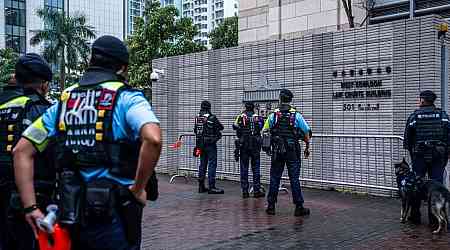
Just over a year into Donald Trump’s first term as President, immigration agents raided a meat processing plant in Bean Station, Tennessee, arresting 104 workers. It was the largest worksite raid in a decade. Two months later, 114 were arrested at a large-scale nursery in Sandusky, Ohio. The next year, immigration agents raided poultry plants in six towns in central Mississippi, arresting 680 workers in one day.
[time-brightcove not-tgx=”true”]When Trump comes back to office in January, he plans to bring back the raids, after President Biden largely put a stop to such enforcement tactics.
“Worksite operations have to happen,” Tom Homan, Trump’s former acting director of Immigration and Customs Enforcement and his incoming “border czar,” said on “Fox and Friends” last week.
Worksite raids generate headlines and TV news stories, but the operations don’t lead to a significant number of deportations, according to those familiar with such operations. “They are flashy, they are disruptive, they are controversial—therefore, I would expect them” during the second Trump Administration, says John Sandweg, who was acting director of Immigration and Customs Enforcement during the Obama Administration. “But from a numbers perspective, they are not going to materially increase the count.”
Trump won the election after repeatedly promising on the campaign trail to launch the largest deportation effort in U.S. history, one that would remove millions of people from the country. Trump confirmed Monday on social media that he was prepared to declare a national emergency and use the military to help beef up his mass deportation program.
Deporting people is challenging and requires time and resources. During Trump’s first term, deportations peaked in the 2019 budget year, when the federal authorities removed about 347,000 people.
To further boost those numbers, the Trump administration may decide to address the backlog of some 3 million cases in the immigration courts by convincing Congress to fund more immigration judges. Or they could hire more agents to locate hundreds of thousands of people still in the U.S. who have already been ordered removed by a judge, says Sandweg.
Worksite raids are expensive, resource-intensive operations that are likely to be less effective in boosting that number, experts say.
Eric Ruark, director of research for NumbersUSA, a group that advocates for reducing both legal and illegal immigration levels, says “worksite enforcement is essential” to dealing with illegal immigration. “It also sends a message to people who might want to come that there’s not going to be the opportunity to work in the United States because they don’t have authorization,” Ruark says. (Homan has also argued that worksite raids are an effective way to find victims of sexual trafficking and forced labor.)
Ruark predicts that reviving of workplace raids will prompt a collision within the Republican Party, as pro-business Republicans are likely to see the raids as undermining the economy. “You’re going to see pushback,” Ruark says. “The only thing standing in the way of carrying out his campaign promises would be opposition within his own party.”
Michelle Lapointe, legal director for the American Immigration Council, which opposes Trump’s immigration plans, agrees that the raids are about sending a message. “Part of the strategy is to terrorize people—and these worksite raids do exactly that,” she says.
After the raid in eastern Tennessee in April 2018, workers sued in court and claimed officers with Homeland Security Investigations and the Internal Revenue Service had illegally singled them out for arrest based on their appearance. A court approved a $1 million settlement. Some workers were also granted legal status as part of the settlement terms. The meat processing plant in Bean Station is still operating.
Lapointe says her organization is preparing to defend workers if worksite raids ramp up again under Trump. “They promised to carry these out again and we take them at their word, unfortunately,” she says.


























